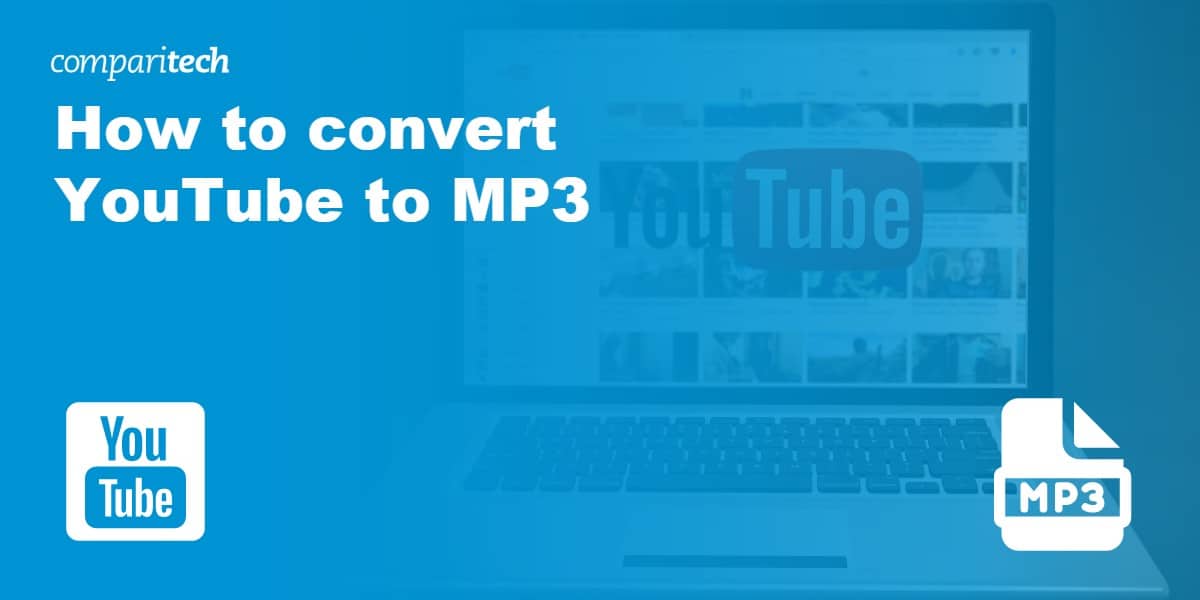
Want to convert music from YouTube to MP3? Perhaps you’ve downloaded content for offline listening or for use in your own music or video project? Most of the content on YouTube is copyright-restricted and not suitable for downloading, but there is content that doesn’t fall under that category.
The steps to convert YouTube to MP3 are straightforward when you have the right tool at hand. In fact, there are many converters available that enable you to download music and video files as well as convert them to a number of different formats.
In this post, we reveal exactly how to download and convert YouTube to MP3. We also discuss how you can check if you’re legally allowed to download a specific piece of content.
How to convert YouTube to MP3
Some files will automatically download from YouTube in MP3 format, for example, if you use YouTube’s Audio Library. Another way to download files you have permission to use is through a third-party downloader. Here are the steps:
- Download and install a reliable video conversion software. We recommend VideoProc as the best YouTube to MP3 converter but Allavsoft and Wondershare are two solid alternatives. We’ll use VideoProc for the next steps.
- Find the YouTube track you want to download (note that you can extract the audio from a video file too) and copy the URL.
- In VideoProc, choose Downloader.
- Paste the YouTube URL into the designated field and click Analyze.
- Choose mp3 from the extension options and click Download Selected Videos.
- On the next screen, click Download now then Continue.
- You’ll notice your file is automatically stored in a default VideoProc folder which is likely located in a folder named Music or similar.
While it’s easy to download any file from YouTube (and many downloaders advertise the ability to do this), it’s not that simple. There are copyright restrictions to consider which we’ll discuss in the next section.
YouTube and copyright restrictions
Content that appears on YouTube is restricted by copyright by default, unless the author expressly permits otherwise.
However, there are cases in which downloading YouTube material is allowed:
YouTube Go and YouTube Premium
If you use the Android YouTube Go app or subscribe to the YouTube Premium platform, you likely know that you can download content for offline playback. However, this feature is only intended to enable you to view or listen to content through a YouTube app. The files you download are encrypted and can’t be converted.
Audio Library
YouTube’s Audio Library provides copyright-free music files for download. These are often used for projects such as video logs, podcasts, or promotional videos. These files automatically download in MP3 format, but if you’d like to convert them to MP4, for example, you can use VideoProc or another video conversion software. Note that sometimes, Audio Library will send you to the author’s site for downloading (often SoundCloud hosted) instead of providing you with the file directly. If that’s the case, check out our tutorial for converting SoundCloud to MP3.
Your own music
You may want to download your own content from YouTube, for example, if you’ve lost your original file and want to make a backup. You may also give permission to others to be able to download and share your music.
Copyright-free music
There is actually a ton of copyright-free content available on YouTube outside of the Audio Library. A simple search for copyright-free, royalty-free, or Creative Commons will yield lots of results. However, you should pay careful attention to stipulations for each piece of content (usually found in the description section). For example, some will request that you credit the author while others might require that you subscribe to their own site before being able to use their music.
Permission from the copyright owner and YouTube
If you’re set on downloading a piece of copyright-restricted content, you will need to have permission from the author of the content and YouTube.
This may be straightforward if you personally know the author, but it can get complicated with some content. For example, for a song, you may need permission from more than just the artist, as there might be producers, songwriters, or other parties involved.
Even if you have permission from the rights holders, you may need permission from YouTube as well. The platform provides information for directly contacting its copyright department.
Important note: Comparitech does not condone or encourage the illegal downloading of copyrighted content. We have compiled the above information for informational purposes but it is not intended as legal advice. To avoid wrongdoing, before downloading content, we recommend consulting YouTube’s terms of service, information provided by the content authors, and any relevant local laws.
See also:
